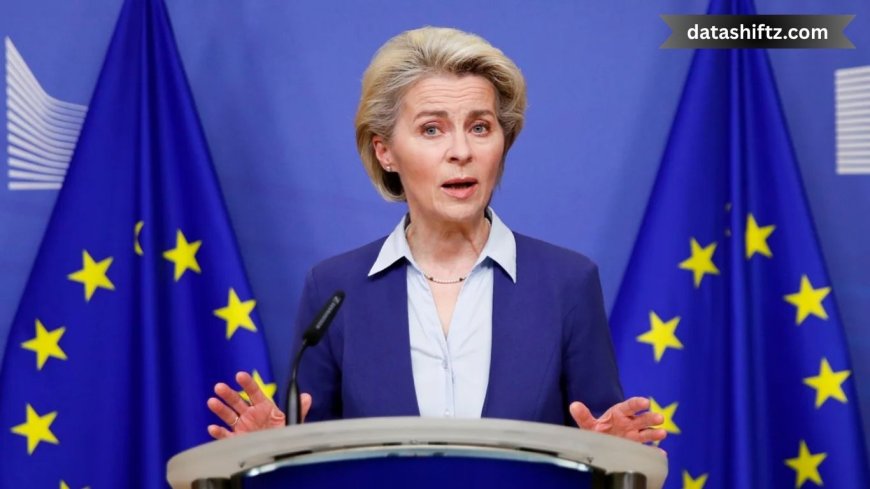Ursula von der Leyen: A Trailblazer in European Politics

Ursula von der Leyen is one of the most influential figures in contemporary European politics. As the first female President of the European Commission, she has played a pivotal role in shaping the future of the European Union (EU). This article delves into her background, political career, achievements, and challenges, providing an insightful overview of her impact on European governance.
Early Life and Political Career
Born on October 8, 1958, in Brussels, Belgium, Ursula von der Leyen grew up in a politically active family. Her father, Ernst Albrecht, was a prominent politician who served as the Prime Minister of Lower Saxony in Germany. This early exposure to politics shaped her ambitions and set her on a path toward public service.
Von der Leyen studied economics and medicine, ultimately earning a medical degree before transitioning fully into politics. Her career began in the Christian Democratic Union (CDU), Germany’s major center-right party. She held various ministerial positions in the German federal government from 2005 to 2019, including:
-
Minister of Family Affairs, Senior Citizens, Women and Youth (2005–2009)
-
Minister of Labour and Social Affairs (2009–2013)
-
Minister of Defence (2013–2019)
Her leadership style, marked by pragmatism and resilience, earned her recognition on both national and international stages.
Milestones in Ursula von der Leyen’s Early Career
| Year | Position Held | Notable Achievements |
|---|---|---|
| 2005-2009 | Minister of Family Affairs, Senior Citizens, Women | Introduced parental leave reforms and childcare expansion |
| 2009-2013 | Minister of Labour and Social Affairs | Managed pension reforms and unemployment policies |
| 2013-2019 | Minister of Defence | First woman to hold the post; initiated military modernization |
Presidency of the European Commission
In July 2019, Ursula von der Leyen became the President of the European Commission, the executive branch of the EU responsible for proposing legislation and implementing decisions. She made history as the first woman to hold this prestigious role, reflecting the EU’s commitment to gender equality.
Her presidency has been defined by ambitious policies aimed at tackling climate change, digital transformation, and the COVID-19 pandemic. The European Green Deal, her flagship initiative, seeks to make Europe the first climate-neutral continent by 2050. Additionally, she spearheaded the EU’s recovery plan in response to the pandemic, mobilizing unprecedented financial resources to support member states.
Priorities of Ursula von der Leyen’s Commission
-
European Green Deal: Reducing carbon emissions and promoting sustainable growth.
-
Digital Europe: Advancing digital infrastructure, artificial intelligence, and cybersecurity.
-
Health and Pandemic Response: Coordinating vaccine procurement and crisis management.
-
Social Fairness: Strengthening workers' rights and social protection mechanisms.
Ursula von der Leyen’s Key Initiatives as Commission President
-
Launch of the European Climate Law to ensure binding climate targets.
-
Introduction of the Digital Services Act to regulate online platforms.
-
Rollout of the NextGenerationEU recovery fund worth €750 billion.
-
Proposal of a stronger EU budget focused on innovation and resilience.
-
Efforts to boost gender equality across the EU institutions.
Challenges and Criticisms
Despite her achievements, Ursula von der Leyen’s tenure has not been without controversy. Some critics argue that her leadership style is too consensus-driven, which can slow decision-making in a complex political environment like the EU. Others have raised concerns about the slow pace of vaccine rollouts during the early months of the COVID-19 crisis.
Moreover, navigating the competing interests of 27 member states requires delicate diplomacy, often leading to compromises that dilute ambitious policy goals. Nonetheless, her ability to balance diverse perspectives while pushing forward key reforms remains widely respected.
Summary of Challenges Faced by Ursula von der Leyen
| Challenge | Description | Impact |
|---|---|---|
| COVID-19 vaccine procurement | Delays and criticism over initial vaccine rollout | Led to political pressure and calls for reform |
| EU member state disagreements | Differing priorities among countries on climate and economy | Complicated consensus-building and slowed progress |
| Digital regulation complexities | Balancing innovation with privacy and security concerns | Required intricate policy negotiations |
Conclusion: Ursula von der Leyen’s Legacy and Future
Ursula von der Leyen’s journey from a medical doctor to one of the most powerful politicians in Europe is a testament to her determination, intelligence, and leadership skills. As President of the European Commission, she has championed transformative policies aimed at making Europe greener, more digital, and more resilient.
While challenges remain, her tenure has marked a significant step forward in European integration and governance. Von der Leyen’s legacy will likely be remembered for breaking gender barriers and steering the EU through turbulent times with a vision for a sustainable and united future.





























